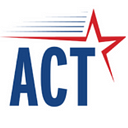It’s a Critical Time for Economic Growth, Not Tax Hikes
The unintended consequences of corporate tax increases will stifle growth when we need it most
After more than a year of coronavirus-caused closures, the U.S. economy is showing signs of recovery and growth. As businesses re-open, Americans are beginning to travel, dine at restaurants and shop in stores once again.
Unfortunately, a full recovery and stable growth are far from a sure thing. The rapid spread of the Delta variant is creating further instability in the economy, unemployment and inflation remain high, and consumer confidence is down.
In the face of these uncertainties, Congress is considering imposing new and uncompetitive tax increases on American businesses. These tax increases would have damaging unintended consequences — limiting the funds companies could otherwise spend by increasing wages, hiring more people and investing in new plants and equipment to stimulate economic growth — and slow growth at exactly the time Americans need it most. The proposed increases would also make it harder for companies to compete and win projects in global markets — opportunities that result in more jobs here at home.
Underlying Economic Instability
An extraordinarily weak August employment report shows a stalling economy with more than eight million Americans out of work and actively seeking a job, and millions more having given up looking. Employment has declined by 5.3 million jobs between August and before the start of the pandemic in February 2020, when the unemployment rate was at a 50-year low of 3.5%.
At the same time employment has fallen, inflation is creeping up. The core personal consumption expenditures price index, a measure of inflation, rose 3.6% between July 2020 and July 2021. Rising prices hurt all Americans, especially those with lower incomes.
High prices, high unemployment and the continuing spread of the Delta variant resulted in a precipitous decline in consumer confidence in August. The index of consumer sentiment compiled by the University of Michigan was 70.3 in August’s final reading, compared to July’s 81.2. This is the lowest level of consumer confidence since 2011, reflecting Americans’ concerns about the economic recovery, higher inflation and the surge in the Delta variant.
A recent analysis from forecasting firm IHS Markit found reduced sales are leading to slower growth for U.S. factories and service providers.
“The expansion slowed sharply again in August as the spread of the Delta variant led to a weakening of demand growth, especially for consumer-facing services, and further frustrated firms’ efforts to meet existing sales,” Chris Williamson, IHS Markit’s chief business economist, told The Wall Street Journal.
Recovery, Not Risk
These signs of economic uncertainty show us precisely why this is a risky time to raise taxes on the companies that employ Americans and supply our goods.
According to the OECD, “Corporate income taxes are the most harmful for growth as they discourage the activities of firms that are most important for growth: investment in capital and productivity improvements.”
Higher tax bills will leave companies with less money to invest in hiring new employees, increasing wages or investing in new plants and equipment. For our country to strengthen its economy — and for Americans to get back to work — businesses need policies that encourage new jobs, higher wages and investment, not ones that will stifle growth and undercut our uncertain economic recovery.
